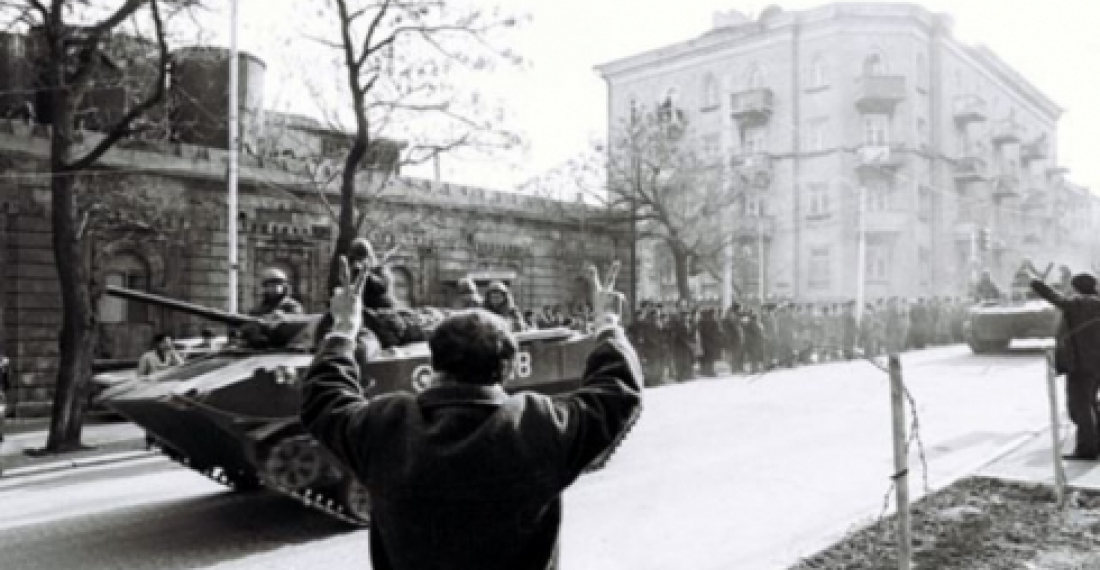Azerbaijan is marking the anniversary of Black January, the events in 1990 when 26,000 Soviet troops enetered Baku to crush popular protests calling for the restoration of Azerbaijani statehood. The protests had been instigated by the Azerbaijani Popular Front, leading to Soviet President Mikhail Gorbachov declaring a state of emergency in Baku on 19 January. The events followed tension in Nagorno-Karabakh where the Armenian community was trying to secede from the Azerbaijan SSR. In anti Armenian riots in Baku many Armenians were killed in the first days of January 1990 and the Communist leadership lost control of the situation.
On 19/20 January ninety three Azerbaijanis were killed when the Soviet soldiers opened fire. The Soviet Army at the time also said that 23 soldiers had been killed by protesters, but this figure is disputed. In anticipation of the crackdown Soviet forces had stopped the transmissions of Azerbaijani Radio and Television and cut off telephone communications with the republic. A correspondent of Radio Liberty was however able to continue sending reports of what was going on. International response was however weak, and there was very little international reaction to the atrocity at the time.
The events of 20 January marked the final break of Soviet power with the people of Azerbaijan, and after that the Communist Party was completely discredited. Azerbaijani statehood was restored by a decision of the Azerbaijani parliament on 18 October 1991 - although independence only followed the collapse of the USSR at the end of that year.
To mark the anniversary of Black January, Azerbaijani President Ilham Aliev, accompanied by Ministers and other officials, this morning visited the Alley of Marthyrs and paid his respects at the tombs of some of those killed. He also put a wreath at the monument of the eternal flame.
source: commonspace.eu
photo: Soviet Tanks on the streets of Baku on 20 January 1990. (picture courtesy of RFE/RL)







